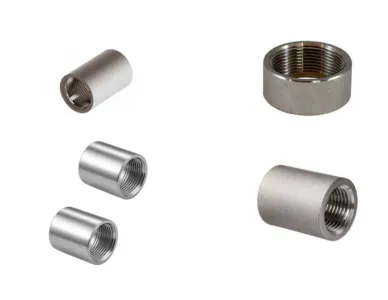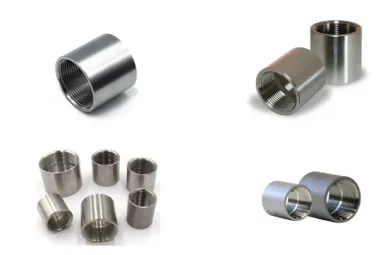-
Cangzhou Yulong Steel Co., Ltd.
-
Phone:
+86 13303177267 -
Email:
admin@ylsteelfittings.com
- English
- Arabic
- Italian
- Spanish
- Portuguese
- German
- kazakh
- Persian
- Greek
- French
- Russian
- Polish
- Thai
- Indonesian
- Vietnamese
- Zulu
- Korean
- Uzbek
- Hindi
- Serbian
- Malay
- Ukrainian
- Gujarati
- Haitian Creole
- hausa
- hawaiian
- Hebrew
- Miao
- Hungarian
- Icelandic
- igbo
- irish
- Japanese
- Javanese
- Kannada
- Khmer
- Rwandese
- Afrikaans
- Albanian
- Amharic
- Armenian
- Azerbaijani
- Basque
- Belarusian
- Bengali
- Bosnian
- Bulgarian
- Catalan
- Cebuano
- China
- China (Taiwan)
- Corsican
- Croatian
- Czech
- Danish
- Esperanto
- Estonian
- Finnish
- Frisian
- Galician
- Georgian
- Kurdish
- Kyrgyz
- Lao
- Latin
- Latvian
- Lithuanian
- Luxembourgish
- Macedonian
- Malgashi
- Malayalam
- Maltese
- Maori
- Marathi
- Mongolian
- Myanmar
- Nepali
- Norwegian
- Norwegian
- Occitan
- Pashto
- Dutch
- Punjabi
- Romanian
- Samoan
- Scottish Gaelic
- Sesotho
- Shona
- Sindhi
- Sinhala
- Slovak
- Slovenian
- Somali
- Sundanese
- Swahili
- Swedish
- Tagalog
- Tajik
- Tamil
- Tatar
- Telugu
- Turkish
- Turkmen
- Urdu
- Uighur
- Welsh
- Bantu
- Yiddish
- Yoruba

Oct . 22, 2024 18:21 Back to list
Coupling
A coupling is a vital mechanical device used to connect two rotating shafts or components in a system. It allows for the efficient transmission of power and motion between different parts of a machine. By compensating for minor misalignments and reducing shock loads, coupling helps prevent system failure and prolongs the lifespan of the connected machinery. Found in various industrial settings, couplings are critical for smooth, reliable operations in sectors like automotive manufacturing, construction, and power generation. Each coupling is designed to accommodate specific requirements, ensuring its suitability for diverse applications.
Wide Range of Applications for Coupling
Coupling types have a broad range of applications across multiple industries, making them indispensable in many systems. In industrial equipment, coupling connects motors and pumps, allowing for fluid power transmission. In automotive engineering, couplings connect engine shafts to the drive shaft, transmitting torque to the wheels. Pipeline systems rely on couplings to securely connect sections of pipes, ensuring a continuous flow of fluids or gases without leaks. Additionally, couplings are often used in power plants, wind turbines, and other high-performance machinery to ensure consistent and reliable operation. Their adaptability to a wide variety of settings demonstrates the importance of selecting the right coupling for each task, ensuring maximum efficiency and safety.
Secure Connection and Long-lasting Durability
The primary function of a coupling is to provide a strong and secure connection between two components, minimizing slippage and ensuring precise transmission of power. This reliability is key to preventing system breakdowns or malfunctions. By reducing stress on the connected shafts and absorbing excess vibrations, couplings also enhance the durability of the machinery they connect. Whether you choose flexible or rigid coupling types, the design is intended to allow for slight misalignments, which helps protect the system from wear and tear. High-quality couplings provided by a reputable coupling manufacturer undergo rigorous testing to ensure they meet industry standards for safety and performance.
A secure connection depends on the coupling's ability to maintain stability under harsh conditions, including temperature fluctuations, pressure changes, and dynamic loads. Modern couplings come equipped with advanced locking mechanisms and anti-vibration features to provide long-term durability and dependable operation.
Materials that Make Couplings Reliable
The material of a coupling is crucial to its overall performance and longevity. Different materials are selected based on the environment and demands of the application. Steel and stainless steel couplings are commonly used in heavy-duty industrial settings due to their strength and resistance to corrosion. These materials are especially useful in environments where the coupling is exposed to high temperatures or harsh chemicals, ensuring they remain functional without deteriorating.
Rubber and plastic coupling types are used in machinery where flexibility is needed. These materials are ideal for absorbing shock and vibration, reducing stress on connected shafts and protecting the overall system. They are commonly employed in automotive applications, helping to cushion the effects of road vibrations and providing smooth performance in drive systems. A trusted coupling manufacturer will offer various material options tailored to the specific requirements of each application, ensuring optimal performance and safety.
Latest news
-
ANSI 150P SS304 SO FLANGE
NewsFeb.14,2025
-
ASTM A333GR6 STEEL PIPE
NewsJan.20,2025
-
ANSI B16.5 WELDING NECK FLANGE
NewsJan.15,2026
-
ANSI B16.5 SLIP-ON FLANGE
NewsApr.19,2024
-
SABS 1123 FLANGE
NewsJan.15,2025
-
DIN86044 PLATE FLANGE
NewsApr.19,2024
-
DIN2527 BLIND FLANGE
NewsApr.12,2024
-
JIS B2311 Butt-Welding Fittings LR/SR 45°/90° /180°Seamless/Weld
NewsApr.23,2024













